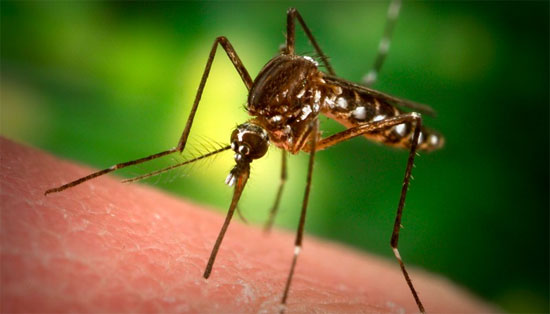Important findings pave the way for antimalarial drugs
On June 5, European researchers announced they had just identified how the live malaria parasite enters the bloodstream.
This is an important finding paving the way for the study of drugs to treat malaria, especially in children - the main victims of this disease.
Falciparum malaria - the most deadly malaria parasite - develops in red blood cells. They cling to the walls of blood vessels to avoid blood flow during the flow to the spleen, where they will be destroyed.
This has been known to the scientific community for over a century, but no one has clarified how malaria parasites adhere to the walls of blood vessels.

Everything was revealed when in 2012, a research team first discovered a protein in this parasitic strain, called PfEMP1 .
The new study, conducted by a team of scientists at the University of Copenhagen, helped clarify this problem by finding the point where PfEMP1 binds to the walls of blood vessels.
After examining 2,500 records and examining malaria parasite samples taken from 15 Tanzanian children with malaria, the researchers identified a vascular receptor called C protein. outer membrane, (EPCR) simultaneously confirms its relationship with PfEMP1.
According to researcher Thomas Lavxtsen of the research group, under normal conditions, ECPR plays an important role in regulating inflammation forming blood clots, dead cells and osmosis.
The discovery of parasites that can bind and hinder the normal function of this receptor can help explain how severe symptoms of malaria develop.
Researcher Matthew Higgins of Oxford University said the new discovery will help drug makers focus on the binding mechanism of parasites.
According to him, first of all need to know exactly which part of the malaria parasite protein can help them cling to receptors in blood vessel walls. From there, vaccination can be concentrated to prevent this link.
According to the report of the World Health Organization (WHO), published in December 2012, in 2010, there are about 219 million people in the world with malaria, most of them are children under 5 in Africa, in which about 660,000 deaths. Meanwhile, according to a study published in Lancet in February 2012, about 1.2 million people die from this disease every year in the world.
- Extract medicine from wormwood to cure malaria
- Malaria is at risk of outbreaks in Africa due to counterfeit drugs
- New discovery about malaria
- Netherlands and investment from antimalarial drugs
- New method of producing anti-malarial drugs
- Antimalarial resistance has spread
- Dead Sea scrolls and important archaeological findings in 2017
- New drugs prevent malaria effectively
- New way to kill malaria parasites
- Anti-malarial anti-cholesterol drugs
- China announced a breakthrough in research on HIV / AIDS treatment
- Find an anti-malaria drug that can turn human blood into toxins with mosquitoes
 Green tea cleans teeth better than mouthwash?
Green tea cleans teeth better than mouthwash? Death kiss: This is why you should not let anyone kiss your baby's lips
Death kiss: This is why you should not let anyone kiss your baby's lips What is salmonellosis?
What is salmonellosis? Caution should be exercised when using aloe vera through eating and drinking
Caution should be exercised when using aloe vera through eating and drinking